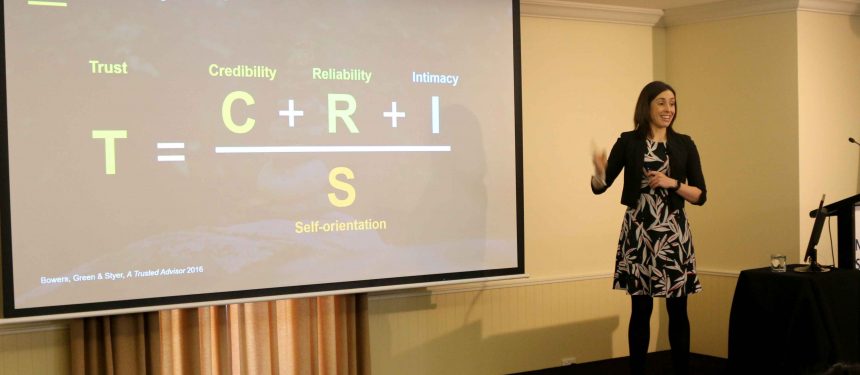The ongoing success of Australia’s international education industry has been built on overlapping relationships of trust, according to speakers at overseas student health cover provider Allianz Partners summit on the Gold Coast.
News and business analysis for Professionals in International Education
Have some pie!
Aus: trust vital to successful international education relationships
 Providers need to nurtute trust between the stakeholders of international education. Photo: The PIE
Providers need to nurtute trust between the stakeholders of international education. Photo: The PIE “Students should really be trusting the community [to be] advocating for them”
Themed The Trust Landscape, the summit unpacked Australia’s international education environment, finding much of its success had been established due to confidence from the community, students, providers, government and regulatory levers.
Speaking at the opening, English Australia Brett Blacker detailed the 2017 ELICOS standards changes, calling them a function to better scrutinise pathway relationships and ensure international students were meeting English proficiency requirements.
“From a regulatory point of view, there is always a lot of scrutinies around these courses, because it’s very easy for a regulator, such as ASQA or TEQSA, to look at standardised testing,” he said.
“The scrutiny is essential because that trusting relationship means that there is obviously a perverse opportunity for someone to go through who may not be at the right academic level or English level.”
Blacker added while he believed it was a very limited cohort of students and providers who were gaming the system, the regulators needed to have enough oversight to monitor and prevent inappropriate behaviour.
“Looking at those relationships, when we looked into the guide… within probably most of those trusting relationships, equal and valued partner coming out as a really critical component to building that sustainable, quality relationships,” he said.
To avoid reputation damage, the wider community must also be confident in the international education system, according to Department of Health director of engagement and education sector Pierre Nijsssen.
“In my view… the trust relationship is between the community and the minister for health,” he said.
“I always emphasise that in order to approach students send students”
“Students should really be trusting the community for advocating for them if something goes wrong in the health system.”
In Australia, international students are required to have private OSHC, and cannot access Medicare, the government-funded public health scheme. Nijssen said this service was vital as it avoided undesirable outcomes for international students and the community.
“If these students weren’t insured, and they received healthcare, and they received a bill and didn’t pay it, that puts pressure on public hospitals. Public hospitals either have to pursue legal action against a student or they have to pass that cost onto Medicare patients,” he said.
“Both those outcomes are terrible.”
Council of International Students Australia national vice president Don Doughty said providers needed to deliver on student expectations.
“During our time in Australia, we are given the expectation or perspective that once we graduate, we can go around the world and be recognised just because of the education we undertake in Australia,” he said.
“That brings us to the value of it, are we moving in the same direction?”
Doughty added that many students put more weight into peer-to-peer connections, and providers should work to engage with student advocates.
“I always emphasise that in order to approach students send students, because you have a common understanding and it’s easier to open up to another student. I believe this is one of the gaps we need to look into,” he said.
“We’re not at a great time for trust across the board,” said Holly Ransom, chief executive officer of Emergent.
“We’ve seen company after company have the rug pulled out from under them, despite the fact that they’re professing to have values like integrity, modesty.”
Speaking at the end of the summit, Ransom agreed with Doughty and said many young people felt education was not meeting their expectations, pointing to higher youth unemployment and uncertainty around automation and artificial intelligence.
She added education would be vital to address the upcoming challenges.
“We can really decrease the pain we’re going to fell from structural unemployment if we can make the path between where skills are right now and what we pivot them to in new economy jobs,” Ransom said.
Still looking? Find by category:


